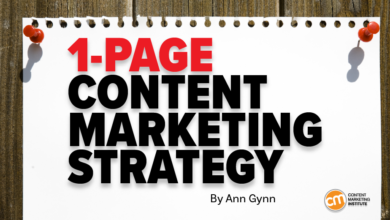Do marketers trust AI too much? How to avoid the strategic pitfall

AI tools are transforming the way marketers research, write, and make decisions. But this increasing reliance on automation could carry serious risks. As powerful as AI can be, its dominance can undermine critical thinking and strategic skills.
The rise of AI in research and marketing
An interesting study was published in late December, but it may have been lost over the holiday season. Previsible, an SEO consultancy, announced that traditional Google search has “fundamentally stagnated and has begun to see its dominance in search deteriorate.” For what? People are using AI-powered search because it has become better and more accessible.
ChatGPT, Claude, Co-pilot and even Google offer a version of AI search accessible to most users. Compared to traditional search, which relies primarily on keyword matching, AI search uses advanced algorithms to understand the context and intent behind the query. As a result, at least in theory, it should provide more relevant and personalized results.
Dig Deeper: Google’s search market share falls below 90% for the first time since 2015
New capabilities and changing user behaviors create a potential warning about the risk of relying on AI. Since AI can draw on large amounts of information, users often default to thinking that the query result is most likely to be the right answer, the right solution, the right recommendation, etc. .
In contrast, since traditional search returns various links to the most likely options for answering the query, the user must make an effort to analyze the results, read and filter the information, and draw conclusions.
And therein lies the potential problem.
Nvidia CEO Jensen Huang said during the company’s latest earnings conference call that we are “at the beginning of a new generation of baseline models that can reason and think long-term.”
Cognitive scientist Gary Marcus says the AI we’re building now fundamentally resembles “System 1 thinking,” a reference to the book “Thinking Fast and Slow” by Nobel Prize-winning psychologist Daniel Kahneman.
System 1 or System 2 Thinking: What it Means for Marketers
In his book, Kahneman explains the dichotomy of human thought, dividing it into two systems.
System 1 is intuitive, fast, and works without voluntary control – one reason he concluded that humans often make bad decisions. System 2 thinking requires focused attention and effort, usually for tasks that are more complex or involve calculations.
Simply put, System 1 is like an instinct or “intuition,” while System 2 represents critical thinking.
If, as AI experts say, we build System 1 AI models, users risk making the same mistakes using AI as they do in everyday decision-making. And, as an observer of younger generations of marketers using AI, they may be particularly vulnerable.
My son, home for vacation from graduate school, mentioned that his classmates were using ChatGPT to summarize lectures and write their presentations. The worst? They don’t question it; they follow the recommendation entirely because it “saves time”.
B2B marketers rely heavily on AI tools to research, write, and recommend actions, attracted by their speed and perceived accuracy. Having grown up in an environment focused on scale and efficiency, many do not have the experience or inclination to question the accuracy of AI-generated results.
Where is this going? Combine all of these factors, and it could indicate a massive wave of “group-thinking” marketers who are either losing the ability to think creatively and/or strategically, or eliminating it altogether because they are programmed to trust to AI.
Generative AI has already come to the creative department, as evidenced by Omnicom’s recent acquisition of IPG. If marketers don’t act now to create an AI management plan, “Hal” could become your CMO in a few years.
What marketers can do to address this threat
How should marketers respond to this threat? Kahneman might suggest focusing on developing skills that emphasize System 2 thinking. Teach your team to use long-term critical and strategic thinking.
Combine the strength of using AI’s System 1 thinking to enable your staff to benefit from training on higher-level System 2 efforts, such as competitive intelligence (which I rarely see) , business intelligence and strategy.
There are good reasons to return to these fundamental elements of strategic marketing. Marketing performance in 2024 was significantly down across all channels and activities. It’s time to look at strategy. There are significant challenges ahead. Moving faster and creating more noise in the market is not a winning strategy.
Dig Deeper: Mitigating the risks of generative AI by bringing humans up to speed
Using AI to enhance, not replace, strategic thinking
In 2017, I wrote an article about how Amazon had become the default search engine for shoppers who knew what they wanted, based on our research into shopping behavior. In that article, I predicted that because of this trend, Amazon would soon eat into Google’s advertising monopoly. At that time, Amazon only had 1% of the global advertising market. By 2020, this figure had increased to more than 10%. This year it will be 14%; by 2026, it is estimated to exceed 17%.
I see a similar trend with AI eating away at the marketing department, not because of the tools themselves but because of the way behaviors are changing thanks to them (similar to what I’ve observed with consumers and Amazon). To be clear, it is not necessarily the technology that poses the threat but rather the change in behavior it causes.
If you want to maintain your value within your organization, learn how to use AI tools to enable better decision-making and not default to them as a decision maker.
Or, as my son’s teacher said, “Use them to become a better student, not to be the student.” » Remember that they only think about System 1. 😉
Contributing authors are invited to create content for MarTech and are chosen for their expertise and contribution to the martech community. Our contributors work under the supervision of the writing and contributions are checked for quality and relevance to our readers. The opinions they express are their own.



